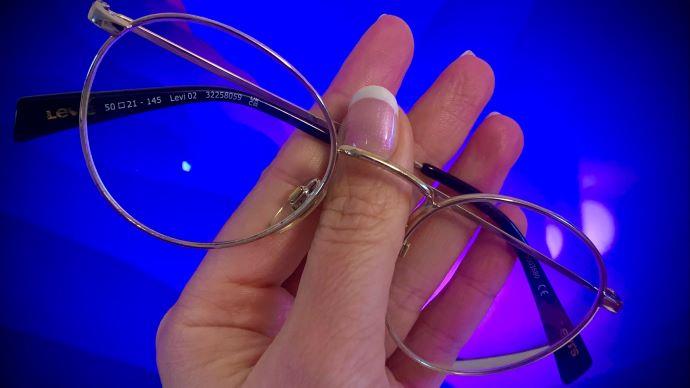A client recently came to me to work on their sleep. They told me “I’ve tried everything, I have a hot bath before bed, drink chamomile tea, meditate and read a book to wind down”. They said “I even have a blue light blocker on my glasses that I wear all day!”. Ah. Bingo.
The Problem
“Blue light is bad!”
We’ve all heard the advice that we should stay away from our screens before bed. If asked, most people can vaguely attribute this to having heard that it’s something to do with blue light. This has led to the common belief: blue light is bad. From screens now having a bedtime mode to the churning out of blue light blocking glasses, companies were quick to jump on the bandwagon. Somewhere along the line, however, the true science got lost…and
a big mistake happened…
Prescription glasses + blue light blocker.
Seems like a logical next step, right? If many of us are already wearing prescription glasses
and if blue light is bad for us, why not combine the two?
Because. Blue. Light. Isn’t. Bad.
In the day.
The Truth
Okay, one half of the story is true. Yes, we shouldn’t get too much blue light in our eyes in the evening before bed. Yes, we need to minimise screen use at bedtime because of this. But what about the rest of the day? Is blue light bad for us then? No! In fact, it’s the opposite.
We desperately need blue light during the day and especially in the mornings. Not from our screens, but from the sun. There are two times of day when there is a lot of blue light outside: around sunrise and sunset. It turns out that getting signals to our brain from this blue light at these times of day is absolutely vital for good sleep. In fact, it’s the main pillarstone for sleep. I won’t bore you with all the scientific details but it comes down to some really special brain cells we have in our eyes that project directly to our brain’s internal master clock which is responsible for sleep as well as so many other functions (like hunger, mood, alertness etc.). Blue light in the middle of the day is also important for boosting our alertness and focus.
So why do glasses manufacturers offer a blue light filter on prescription lenses?
Honestly? The hype.
Some companies even have information pages outlining how the data don’t really support blue light blockers having any positive effect on the usual popular reasons people think they should get them (eye strain, screen fatigue, eye health etc.). Yet they still offer blue light filters as an add on. Now, I’m not here to bash glasses manufacturers. They’re just meeting popular demand, I get that. Maybe they think they’re profiting from something that has no positive or negative impact, so why not. As with most of the population, they seem to have missed the memo that we actually need blue light in the daytime.
So what happens when blue light is blocked at all times of day? Frankly, nothing good. Your sleep gets worse. You feel tired and groggy. You need never ending amounts of caffeine just to function. You feel wired but tired at the same time.
My client was experiencing all of these things. They felt so hopeless about their sleep that they just assumed they must be a “poor sleeper” and coming to me was a last resort.
The Result
After I explained the neuroscience behind sleep and blue light to my client, those blue light blocking glasses got swiftly swapped for a new, blocker-free, pair for the daytime. The old pair were exclusively reserved for evening use.
After just 3 sessions with me, building and implementing an action plan based on the real neuroscience of sleep, my client’s sleep was unrecognisable. For the first time in their life they were falling asleep with ease, getting truly restorative sleep and having so much energy in the day that they even started working out in the mornings!
So please, if you wear prescription glasses, check if you opted in for a blue light blocker, and if you did, it might be time for a trip to the optician.
If you’re struggling with your sleep and want to do something about it NOW, fill out the form on my website https://livebrighternow.com or drop me an email at bianca@livebrighternow.com.
Bianca is a Neuroscientist & Wellbeing Consultant and helps people with all aspects of their wellbeing from a Neuroscience perspective. Specialising in sleep, managing stress and creating lasting behaviour change, she offers 1-1 consultations and corporate workshops through her business LiveBrighterNOW. She has a first class masters in Neuroscience and is an accredited EMCC Health Coach. For more information, see her website https://livebrighternow.com



